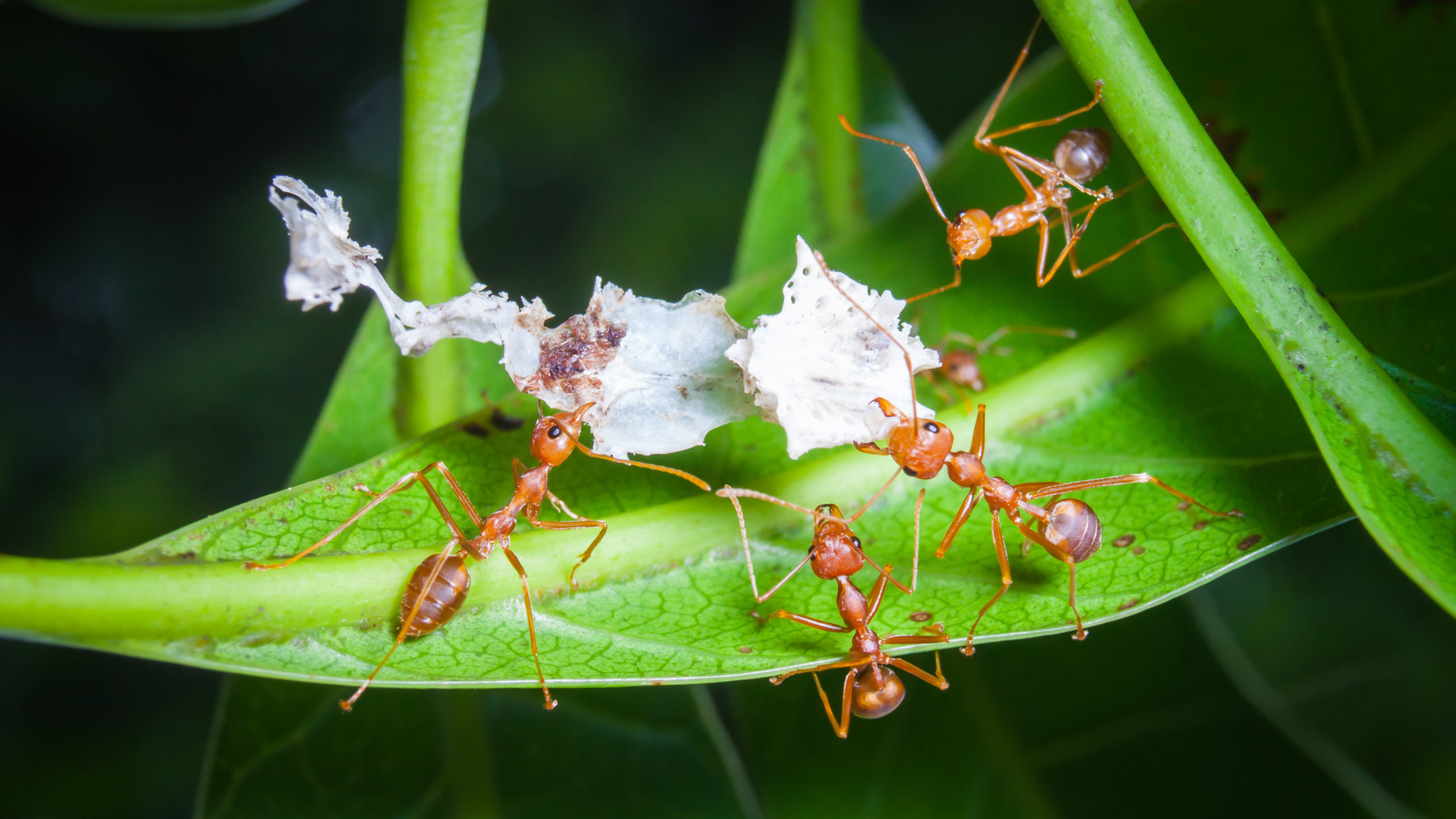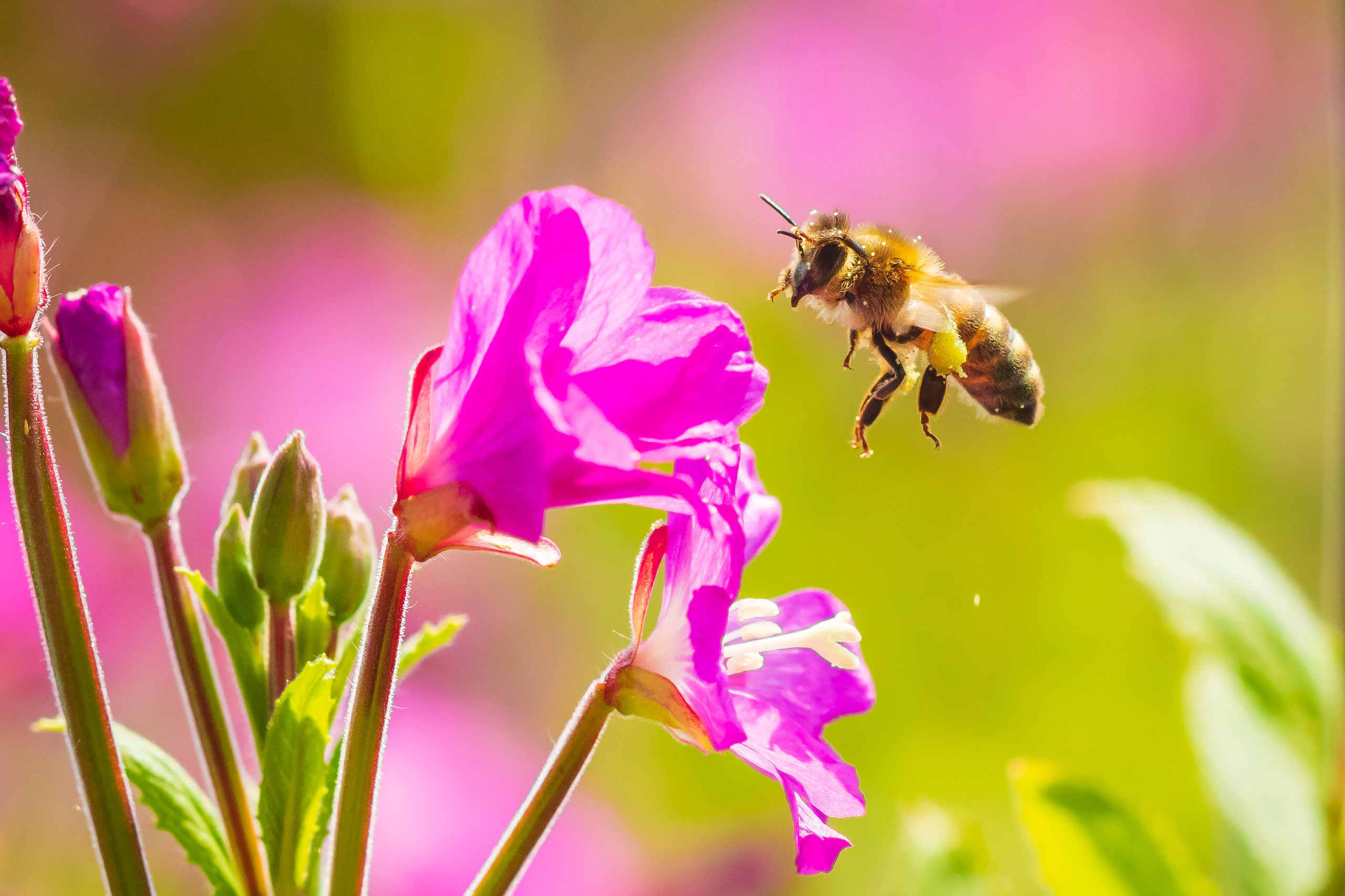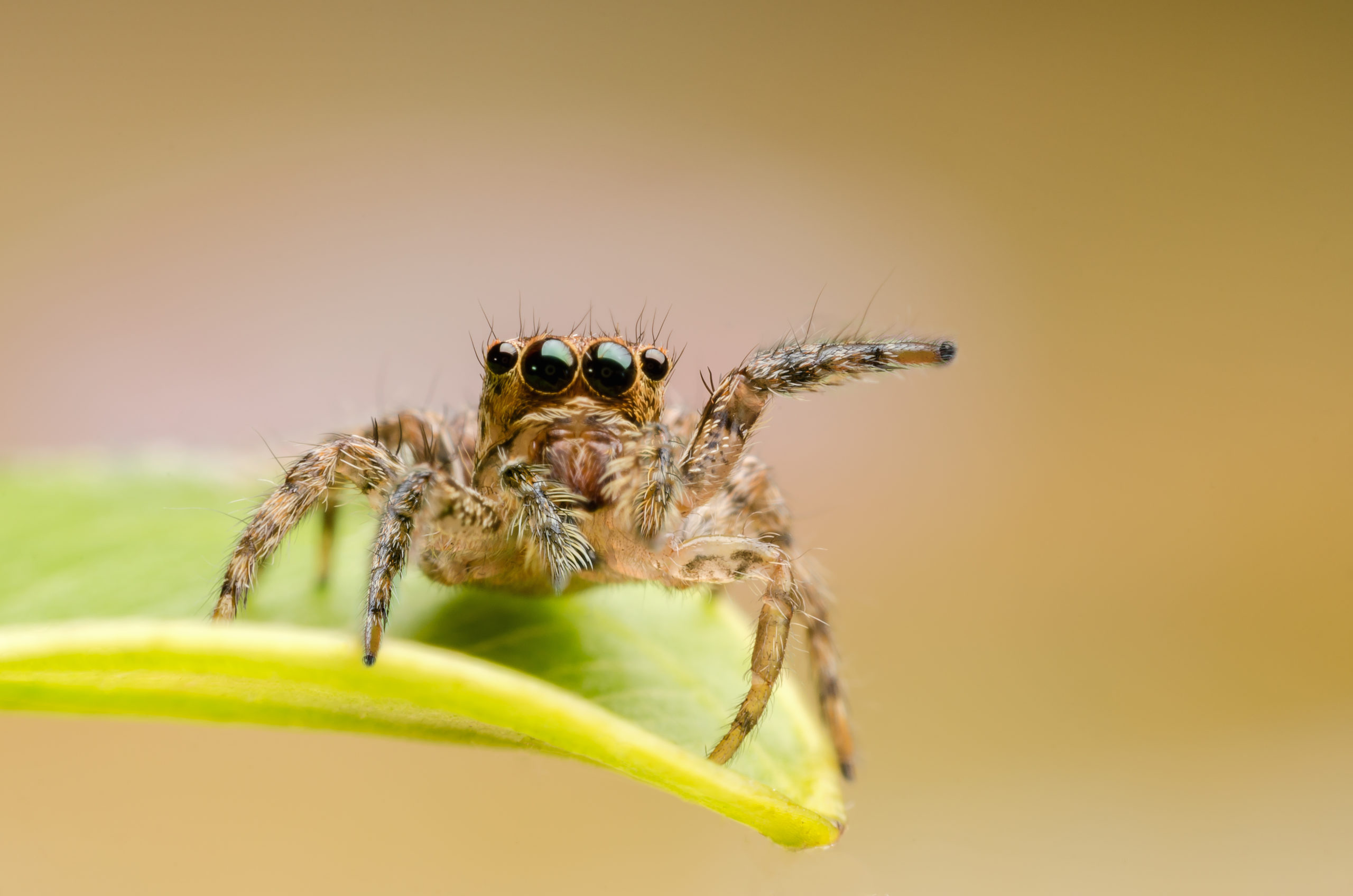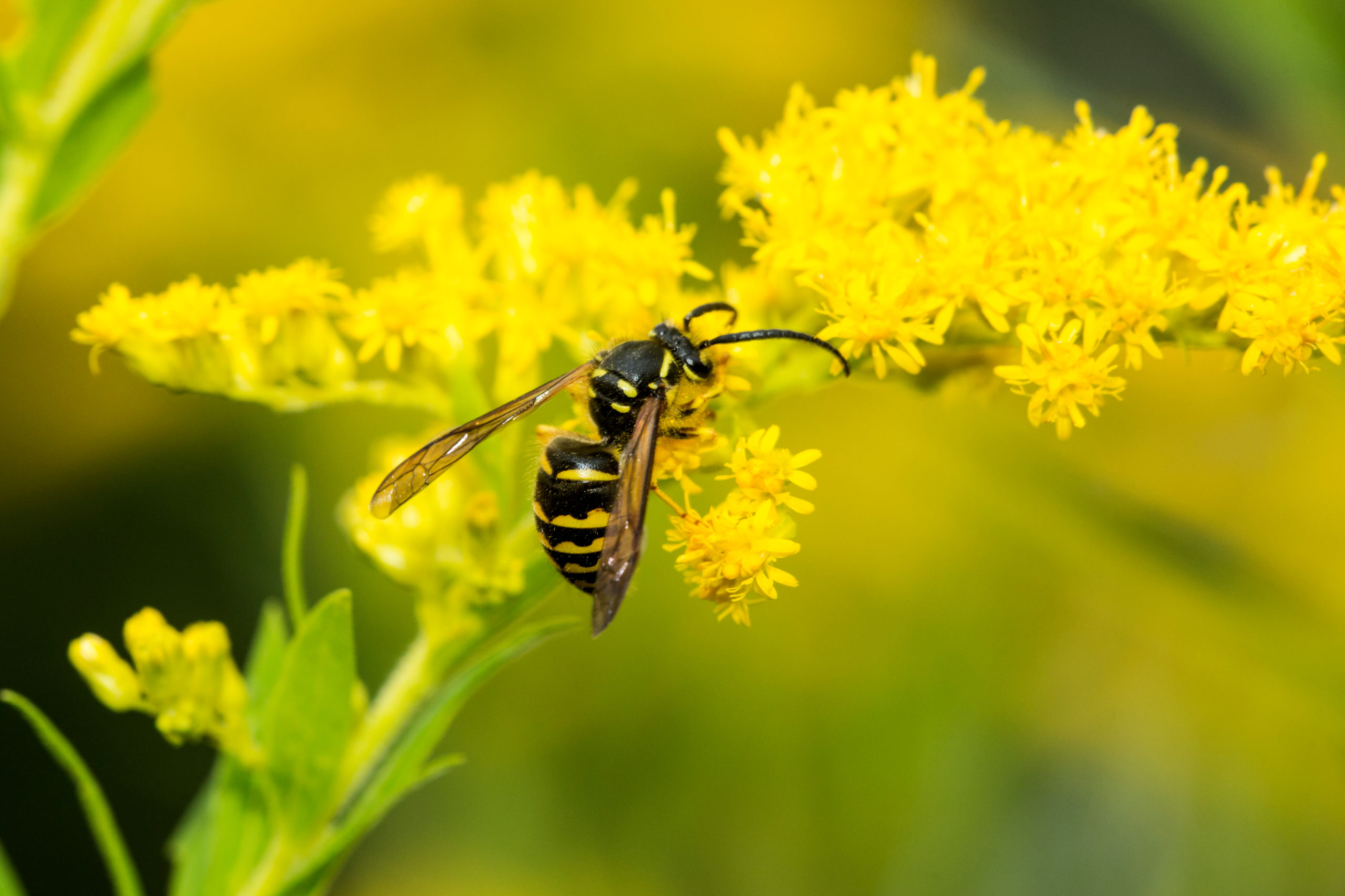The Personalities of Pests, Featuring a Fun Quiz!
The Personalities of Pests, Featuring a Fun Quiz!
Pests are just like any other creature: they have their own personalities that are essentially engrained into their species with slight variance between each individual being. Some insects are more social than others because they live in a colony or big family. Some live to work and are constantly on the move all day or night. And some go through transformations before they reach their full potential of being a wondrous and able-bodied insect. Some of the most common pests have personalities that are only easy to discern because of their proximity to us.
The more social insects, like ants, bees, and wasps, all live in a big community with their own kind. Their nests are not only their home, but they are also the place where they bring the sustenance to feed the colony and make new creations. They are also all eusocial insects, meaning they live in a colony that has a queen, who is the only one capable of reproducing and keeping the colony’s generations growing.
But there are differences between these similar pests. Ants live to work, constantly finding food sources and using pheromones to lead the rest of the colony to that place. They can also lift up to 5,000 times their own weight, making them incredibly strong and adaptable. Bees also work hard all day, but they are diligently gathering pollen and nectar while simultaneously pollinating our flowers. The pollen and nectar they bring back to the hive is used for food and honey manufacturing, making it multi-purposeful. Wasps build the nest out as the colony grows, but they are also hunting smaller insects to bring back as food for the colony. Wasps are definitely the most aggressive out of the bunch, but ants and bees will defend themselves if they need to. Bees seem to be the most friendly of the bunch since they just care about finding flowers and helping their hive, and will only come near us if we’re wearing a floral-themed shirt or flowery perfume.
The different social levels within the colonies also contribute to the personalities and habits of the insects. A worker will have a different outlook than the queen, who will have a different outlook than the soldier (if there is one). Since each caste has different functions and priorities, their personalities differ as well. The workers who are using materials to build and craft the home and keep the colony alive live to serve and make sure everyone is sustained. They can have tunnel vision (maybe literally) in focusing on their tasks. The queen is the sole reproducer in these hives, so she is focused on being fulfilled by food and keeping the colony populated. It’s unclear if she knows how important she is, but she must know she’s different by having her own section of the hive. Soldier castes, like in termite colonies, are the protectors of colonies. They often make structures that block the colony from being invaded, and have natural defense mechanisms to ward off any predators. All castes are important in a colony, and the priorities of each one determine the personalities of the individual insects.
More independent pests, like spiders, still work but only for themselves and their offspring. They spin intricate webs of varying designs, like funnel webs, depending on the species. Spiders also hunt and gather insects for food, but it’s either a solo meal or for their children. When looking for a home, they look for the safest place where they can also have easy access to insects for their main source of food. They don’t seek out humans to bite, but some of them are very dangerous if they do happen to get you.
Pest control is valuable in controlling the population of these insects because the specialists are trained to recognize the patterns and preferences of pests. Some pests can be beneficial in nature, but they quickly become a problem when their population grows too much in our homes and yards. Our team knows all of the common hiding spots and tricks of these pesky creatures, so we can nip the problem in the bud. We only use high-quality EPA-approved treatments, so you don’t have to worry about harsh chemicals in your home.
Our typical blogs end with talking about our services, but today’s is different! We have a fun quiz for you to take to see which common insect’s personality you align with. This is not a set-in-stone quiz and does not provide any factual information about people’s personalities. We are not insinuating anything bad with any result, as each of them have good qualities. It’s just a fun activity to do for a few minutes that will hopefully bring a smile to your face!
Which Insect Personality Do You Share?
Keep track of your answers and count which number you choose the most!
1. Where are you found at a party?
- Posted at the snack table with my friends
- Hopping from group to group, joining conversations and making sure everyone is good
- Hanging out on the side and surveying the room for a group to join
- Only socializing with your friends and not talking much outside of your circle
2. Who is your favorite celebrity chef?
- Guy Fieri
- Giada De Laurentiis
- Ree Drummond
- Gordon Ramsay
3. Your family makes breakfast for you on your birthday. What do you request?
- Waffles, bacon, eggs, toast with jam – everything!
- Chocolate chip pancakes with sprinkles and whipped cream
- Eggs Benedict, just to be a little fancy
- Just coffee and toast. You don’t eat much in the morning
4. Who is your favorite non-insect-related superhero?
- Iron Man
- Black Panther
- Captain America
- Captain Marvel
5. What is an essential activity on a vacation?
- Hiking on the best trails with the group of friends I travel with
- Visiting any kind of botanical gardens and flower fields
- Anywhere that my kids want to go
- Lounging by the hotel pool with a book and headphones
6. What was your favorite comic strip in the Sunday paper?
- Garfield
- Peanuts
- Baby Blues
- Dilbert
7. What is your favorite Pixar movie?
- Ratatouille
- Finding Nemo
- Monsters Inc.
- The Incredibles
8. What do you listen to while you drive?
- The latest pop music
- ‘70s throwbacks
- Country music
- A podcast about whatever interests you at the moment
9. You have the day off! How do you spend the day?
- Work out in the morning and have a huge picnic with my people, weather permitting
- Shopping for a new plant or bouquet of flowers, even though you already have a lot
- Sleep in and do your favorite hobby all day
- Make social media content with your best friend(s)
10. What is your favorite holiday?
- Halloween
- Easter
- Christmas
- Fourth of July
Mostly 1’s: Ant

Ants are hardworking and excellent team players. They are constantly looking for food to feed their massive colony, and have the strength to carry the biggest crumbs. They enjoy the simple things and spend a lot of time outdoors, but like their inside time as well. Ants can be independent as well, since worker ants labor to find food and lead their colony to that source. Ants don’t have one specific favorite food, but they are drawn to sugary substances and anything with protein. Ants know that there is strength in numbers, and have a special love for all things food.
Mostly 2’s: Bee

Bees are arguably the best backyard pest to find because they leave us alone unless we get too close, and they help our flowers grow! Bees are diligent workers that know their purpose and do everything they can to help their colony by foraging. They are definitely social insects, making sure that the hive is safe and leading other bees in their colony to the best flowers. Bees always seem to be in a good mood, with their curious nature and buzzing ways, but they will do anything to defend their home and family.
Mostly 3’s: Spider

Spiders are an interesting type of insect. They are independent, living in their own web and catching food for themselves, but they will also feed and defend their family when they have one. Spiders are resourceful and talented, visibly demonstrated by their functional web art. Some mother spiders, like the wolf spider, carry their babies on their backs until the babies are strong enough to crawl away on their own; this demonstrates their care for their children and close family. Spiders can live anywhere that there are insects to eat, but once they set up shop somewhere, they will stay there for quite some time to establish their home and family.
Mostly 4’s: Wasp

The wasp can seem intimidating at first, but they are a family-oriented insect. While the queen starts a colony, the workers are the ones who build up and maintain the nest once she starts reproducing more. They are dedicated workers who have their specific tasks that they focus on every day: building and maintaining their home, hunting for food for the colony, and protecting their home. Wasps know who their friends are, and they are not very outgoing with insects they don’t know. They will do anything to defend their home and family, and are extremely protective in nature. Wasps won’t waste their time with tasks or insects that they don’t enjoy or need, so they work hard to get what they want out of life.
***Disclaimer: Section 107 of the United States Copyright Act recognizes “fair use” copywriter content as such: “Notwithstanding the provisions of sections 106 and 106A, the fair use of a copyrighted work, including such use by reproduction in copies or phono-records or by any other means specified by that section, for proposes such as criticism, comment, news reporting, teaching, scholarship, or research, is not an infringement of copyright.” This blog post may contain certain copyrighted works and characters that were not specifically authorized to be used by the copyrighted holder(s), however, the content on this post qualifies as “commentary” on the copyrighted works under the “fair use” doctrine of the U.S. Copyright Act and is thereby protected by federal law. Furthermore, we do not claim any ownership or creative rights of any characters on this list, and all rights outside of the fair use doctrine belong to the respective owner(s).
Citations
Hart, Prof. A. (2017, August 25). What’s really the point of wasps?. BBC News. Available at https://www.bbc.com/news/science-environment-41042948 (Accessed on April 7, 2022).
Request a Free Quote Today
(We do not share your data with anybody, and only use it for its intended purpose)


